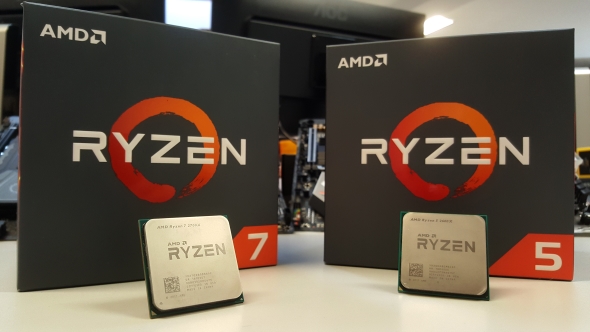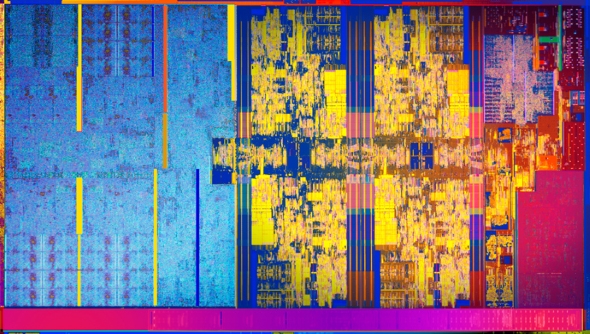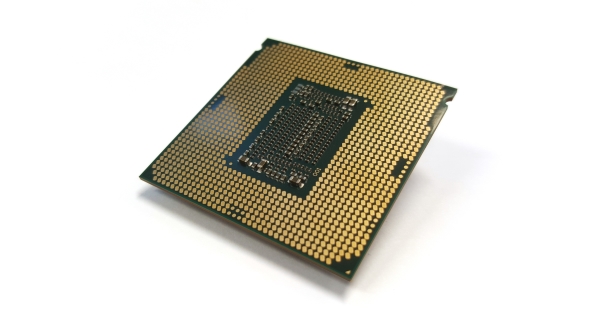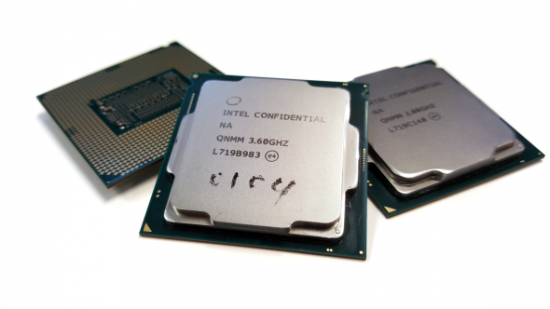In the wake of the release of the AMD Ryzen 2 processors Intel are surely going to have to respond. But, despite a few short-term sales potentially directly following the AMD release, I don’t think widespread Intel Coffee Lake CPU price drops will be the long-term answer from chipzilla.
Want to know what the best processor to drop into your next rig is? Check out our pick of the best CPUs for gaming.
The vanguard for the second generation of AMD Ryzen processors is now out in the wild, just over a year after the first-gen chips launched, and the red team have listened to the feedback, re-engineered some features, introduced a new production process node, and delivered higher frequencies. The result is a set of new CPUs that improve on the first release in every possible way.
And give their competing Intel processors a real headache.
The Ryzen 7 2700X capably out-performs the more expensive Core i7 8700K in any multi-threaded workload you care to toss its way and is only very marginally slower when it comes to gaming performance. There’s a frame rate delta which almost entirely evaporates as soon as you push the resolution higher than 1080p.
The Ryzen 5 2600X then makes a mockery of the Core i5 8600K by smashing it in the raw processing stakes and keeping pace in gaming terms. The only unsightly blemish on the otherwise smooth complexion of AMD’s Pinnacle Ridge launch is the six-core Intel gaming pimple, the Core i5 8400.
It was our favourite Coffee Lake chip from last year’s launch, and it still offers higher gaming performance than the competing second-gen Ryzen processors, but in a shock twist is actually cheaper than them too. How very unlike Intel.
So, does that mean Intel ought to cut their losses and slice the prices of their other Coffee Lake CPUs? That would be the simplistic answer… if Intel were particularly worried about a suddenly dropping market share.
It’s true AMD have working at chipping away Intel’s CPU dominance since the launch of the first-gen Ryzen processors, but a quick look at the Steam Hardware Survey will tell you it’s not happening at the levels they would want yet. There was a gain of 2% from February to March this year, but that’s the only good news in twelve months where AMD’s Steam market share has actually been steadily dropping.

Of course, there was a big change in the survey towards the end of last year as the number of Steam users from China rose exponentially, potentially linked to the release of PUBG in the region. That has skewed the survey somewhat, and you can see there was a big drop in AMD share from September to October as a result of the goalposts shifting.
But even prior to that AMD had been steadily losing ground throughout 2017, despite the success of Ryzen.
Essentially what that all means is that Intel are still in a very strong position as the de facto processor for PC gaming, and will continue to ship the CPUs at the heart of the lion’s share of gaming notebooks and desktops sold into the market by the big OEMs. It’s only really in the DIY space, where the likes of you and I are looking at the relative performance deltas of different parts on a component-by-component level, that the change is likely to come.
And Intel will likely be happy to swallow the slight loss in earnings that might accompany a few more of us building our own PCs using AMD processors and motherboards, because they’ll still make more money than if they dropped the prices across the board just to win back the minority DIY crowd. So no, I don’t think Intel will drop the unit price of their processors. And also not least because that looks like a potential sign of weakness to the city and their investors.

What will Intel do then? Well, there’s only one thing they can do if they’re not going to cut prices – throw some more cores at the problem. Last year, when AMD surprised the world by launching the mega-core Threadripper processors, Intel had to respond in a chip-for-tat round of ‘my core-count’s bigger than yours.’ And I doubt Intel are going to want to sit behind AMD in terms of their mainstream core-count much longer.
Surely Intel will release their eight-core Coffee Lake this year. It would make sense to launch alongside the Z390 chipset being released towards the end of the year, if only to give the feeble motherboard upgrade some sense of relevance.
An eight-core, 16-thread Coffee Lake chip – dare I say a Core i9 – would be able to offer the twin virtues of Intel’s classic higher gaming performance and the extra cores would mean it could at least match Ryzen’s multi-threaded performance. Possibly even beat it, if Intel can offer the same level of overclocking that easily allows the 8700K to top 5.2GHz.

Intel might also be able to garner a little goodwill ahead of an octa-core launch if the rumouredCore i7 8086Kends up being launched in June.
As we’ve mentioned before, AMD may then offer a Ryzen 7 2800X riposte, but given the fact it’s tough to squeeze any extra overclocked performance out of the 2700X, getting a 2800X running with a boost clock of anything like the 4.5GHz it might need to stand toe-to-toe with an octa-core Intel would require some serious bin-sorting and a very limited, potentially very expensive chip.
In the end then, AMD’s latest Ryzen launch will see some Intel response, but don’t expect it to be any sort of financial one. Not until they’re about to launch the Intel Ice Lake range anyways…
